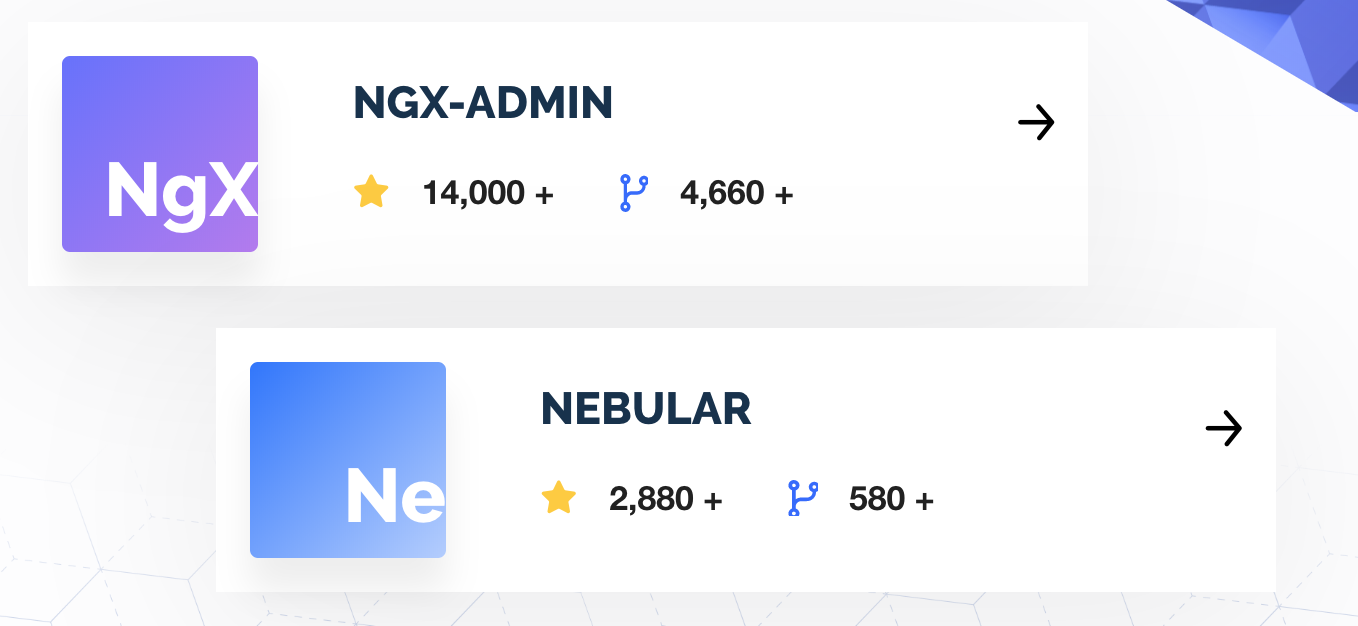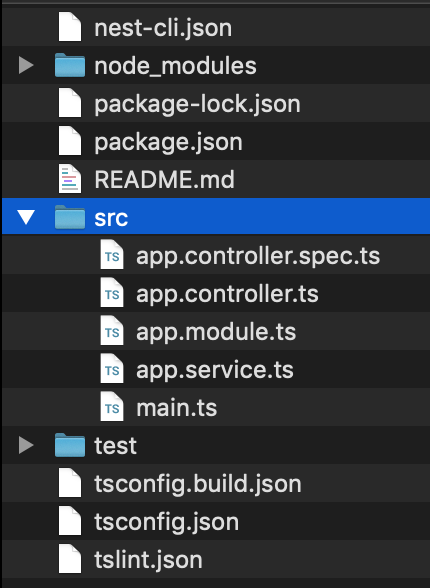Smells like Angular Spirit:
NestJS as natural backend for Angular


@ValentinKononov


Valentin Kononov
Full-Stack Developer

Speaker
@akveo_inc
@ValentinKononov

Slides
- https://slides.com/valentinkononov/smells-like-angular-spirit
@ValentinKononov
- https://docs.nestjs.com
Agenda
@ValentinKononov
- Intro
- Tune in NestJS
- NestJS Framework Members
- Controllers
- Dependency Injection
- Benefits
- Authentication Sample
- Conclusion

Intro. NestJS Philosophy
How it's connected to Angular?


-
Typescript
-
Framework
-
Out-Of-The-Box Features
-
-
Inspired by Angular
-
Same Look and Feel as Angular
-
Decorators usage to define Metadata
-


@ValentinKononov



Tune in NestJS
Dive into Code Samples


Installation
npm install -g @nestjs/clinpm run startinstall node v8.9.0 or highernest new Angular-Belarus-Meetup-App
@ValentinKononov

Main.ts

@ValentinKononov
import { NestFactory } from '@nestjs/core';
import { AppModule } from './app.module';
async function bootstrap() {
const app = await NestFactory.create(AppModule, {
logger: new WinstonLogger(),
cors: true,
});
// app configuration here
await app.listen(3001);
}
bootstrap();AppModule.ts

@ValentinKononov
import { Module } from '@nestjs/common';
@Module({
imports: [
AuthModule,
UserModule,
MongooseModule.forRoot(
'mongodb://localhost:27017/bundle-node-nest'),
WinstonModule.forRoot({ }),
],
exports: [...],
controllers: [AppController],
providers: [AppService],
})
export class AppModule {}NestJS Framework Parts
out of the box

NestJS Framework Parts

@ValentinKononov
Modules
Controllers
Routing
Dependency Injection
Middleware
Pipes
Guards
Exceptions
Interceptors
Controller

@ValentinKononov
import { Controller, Get, Post, Put, Delete, Body, Param, Req }
from '@nestjs/common';
@Controller('api/users')
export class UserController {
constructor(private readonly userService: UserService) {}
@Get(':id')
async getById(@Req() req, @Param() id: string) {
return await this.userService.findById(id);
}
@Post()
async create(@Body() user: User) {
return await this.userService.create(user);
}
}Dependency Injection

@ValentinKononov
import { Injectable, Scope } from '@nestjs/common';
@Injectable({ scope: Scope.REQUEST })
export class UserService {
public async create(user: any): Promise<UserDto> {
return await createdUser.save();
}
public async findById(id: string): Promise<UserDto> {
return await repository.findById(id);
}
}Module.exports
Module.providers
Put To
Guards

@ValentinKononov
import { Injectable, CanActivate, ExecutionContext } from '@nestjs/common';
@Injectable()
export class AuthGuard implements CanActivate {
canActivate(
context: ExecutionContext,
): boolean | Promise<boolean> {
const request = context.switchToHttp().getRequest();
return validateRequest(request);
}
}
@Controller('api/users')
@UseGuards(AuthGuard)
export class UserController {
...
}// main.ts
const app = await NestFactory.create(AppModule);
app.useGlobalGuards(new AuthGuard());
Interceptors

@ValentinKononov
@Injectable()
export class TrackInterceptor implements NestInterceptor {
intercept(
context: ExecutionContext, next: CallHandler
): Observable<any> {
logger.log(`Request Started`);
return next.handle()
.pipe(
tap(() => logger.log(`Request completed`)),
);
}
}
@Controller('api/users')
@UseInterceptors(TimeTrackingInterceptor)
export class UserController {
...
}// main.ts
const app = await NestFactory.create(AppModule);
app.useGlobalInterceptors(new TimeTrackingInterceptor());
Authentication
steps and code sample

Define Strategy

@ValentinKononov
import { ExtractJwt, Strategy } from 'passport-jwt';
...
import { PassportStrategy } from '@nestjs/passport';
@Injectable()
export class JwtStrategy extends PassportStrategy(Strategy) {
constructor(private readonly authService: AuthService) {
super({
jwtFromRequest: ExtractJwt.fromAuthHeaderAsBearerToken(),
secretOrKey: process.env.AUTH_JWT_SECRET,
});
}
async validate(payload: JwtPayload) {
const user = await this.authService.validateUser(payload);
if (!user) {
throw new UnauthorizedException();
}
return user;
}
}Import Modules

@ValentinKononov
import { JwtModule } from '@nestjs/jwt';
...
import { PassportModule } from '@nestjs/passport';
@Module({
imports: [
PassportModule.register({ defaultStrategy: 'jwt' }),
JwtModule.register({
secretOrPrivateKey: config.auth.jwt.secret,
signOptions: {
expiresIn: config.auth.jwt.ttl,
},
}),
],
controllers: [AuthController],
providers: [AuthService, JwtStrategy],
exports: [PassportModule, AuthService],
})
export class AuthModule {}Use Guards

@ValentinKononov
import { Controller } from '@nestjs/common';
import { UseGuards } from '@nestjs/common';
import { AuthGuard } from '@nestjs/passport';
@Controller('api/users')
@UseGuards(AuthGuard('jwt'))
export class UserController {
...
}Create Token

@ValentinKononov
import { JwtService } from '@nestjs/jwt';
private getTokenPayload(user: User): JwtPayload {
return {
email: user.email,
role: user.role,
id: user.id,
};
}
public async signIn(user): Promise<Token> {
const expiresIn = config.auth.jwt.ttl;
const token = this.jwtService.sign(
this.getTokenPayload(user),
{ expiresIn });
return { token };
}Benefits

-
Code Organization
-
Out of the Box feature
-
Same Look and Feel as Angular
-
Real code sharing
-
Compatibility with TS and JS
-
Good Documentation

@ValentinKononov
Conclusion
or instead of cons

-
SOLID node framework based on Express
-
but you need to follow the structure
-
-
If you don't like Angular it might be hard
-
Could be excess for pure node developer
Thanks!
See you again!
@ValentinKononov

